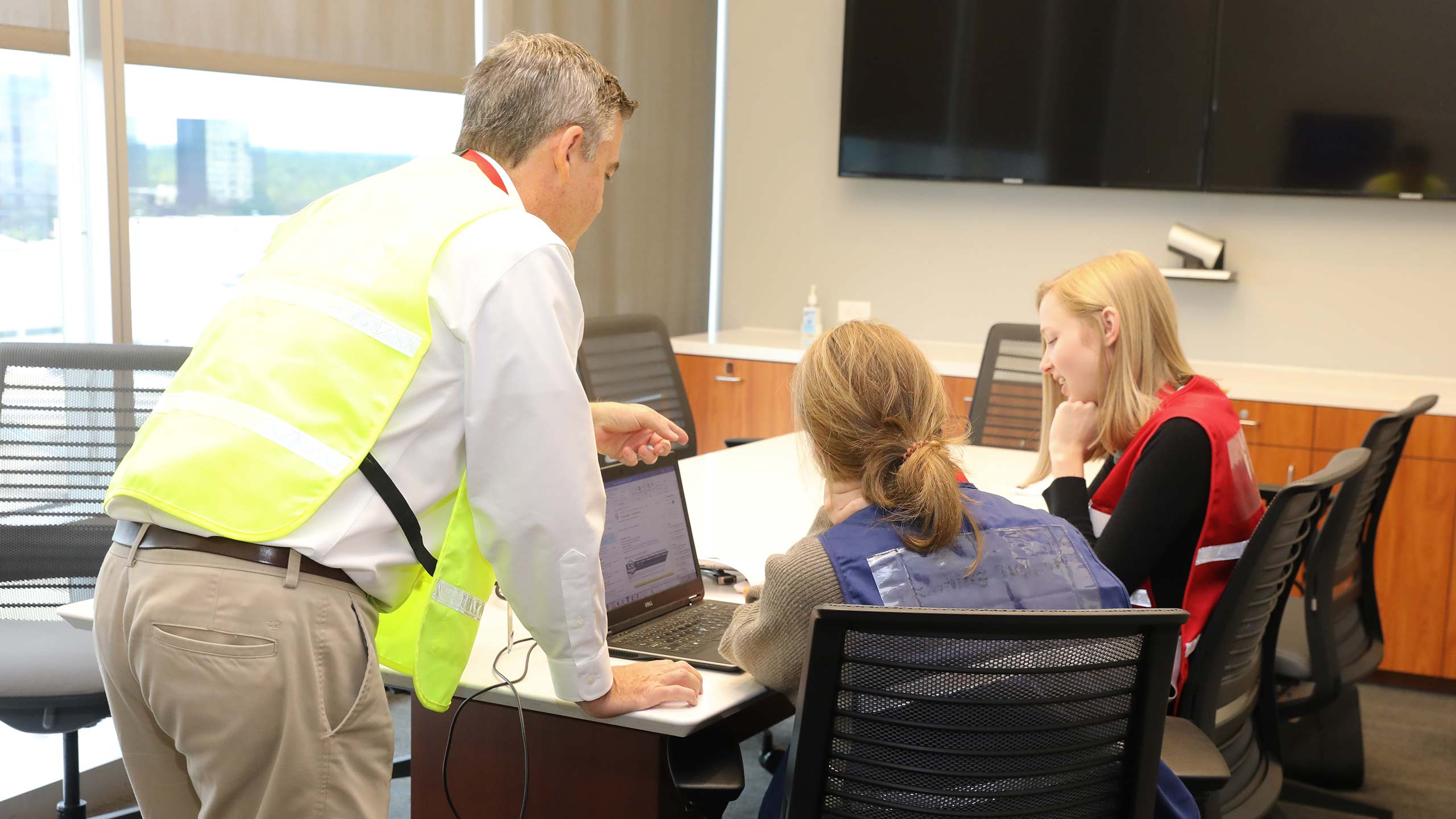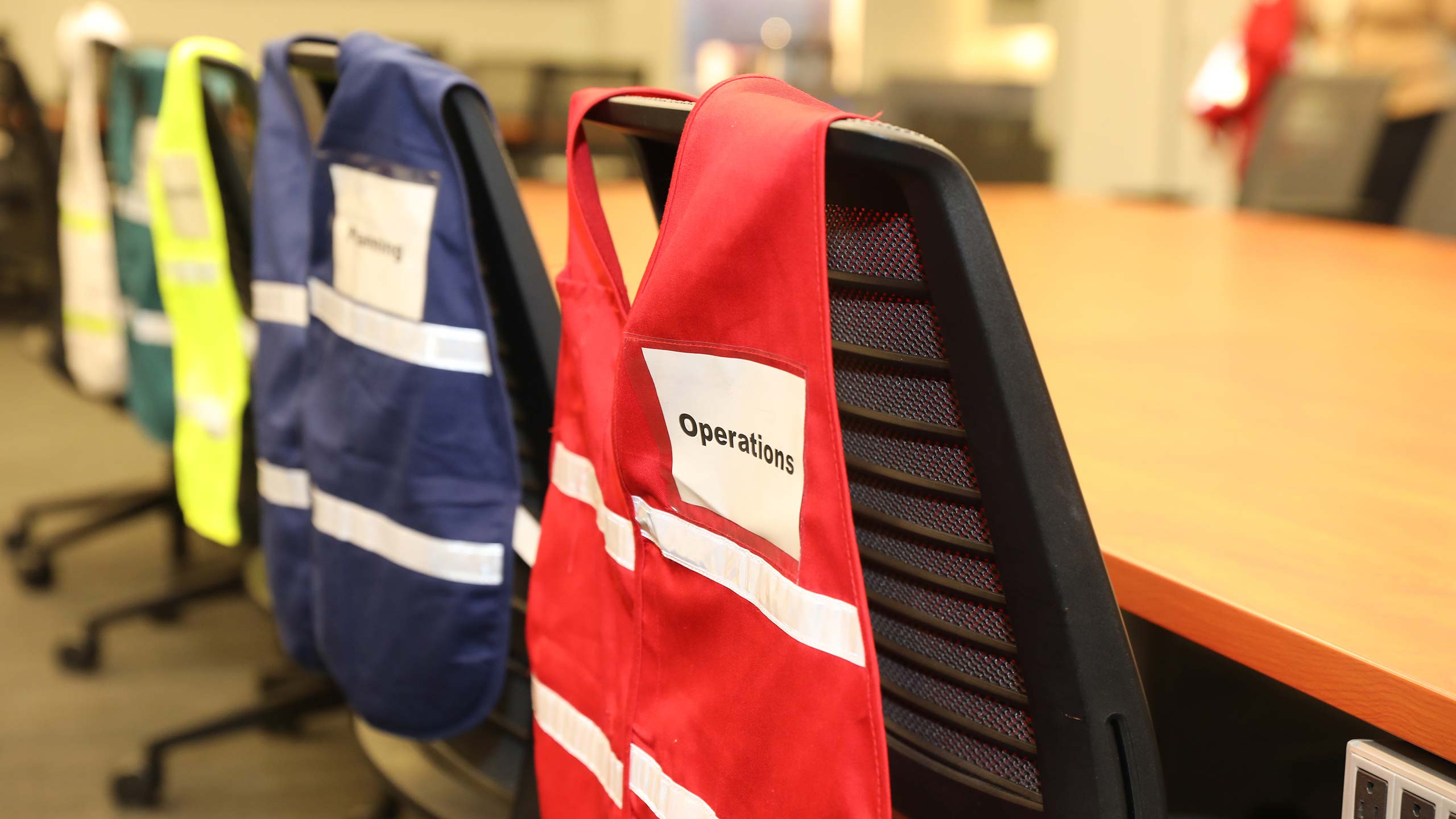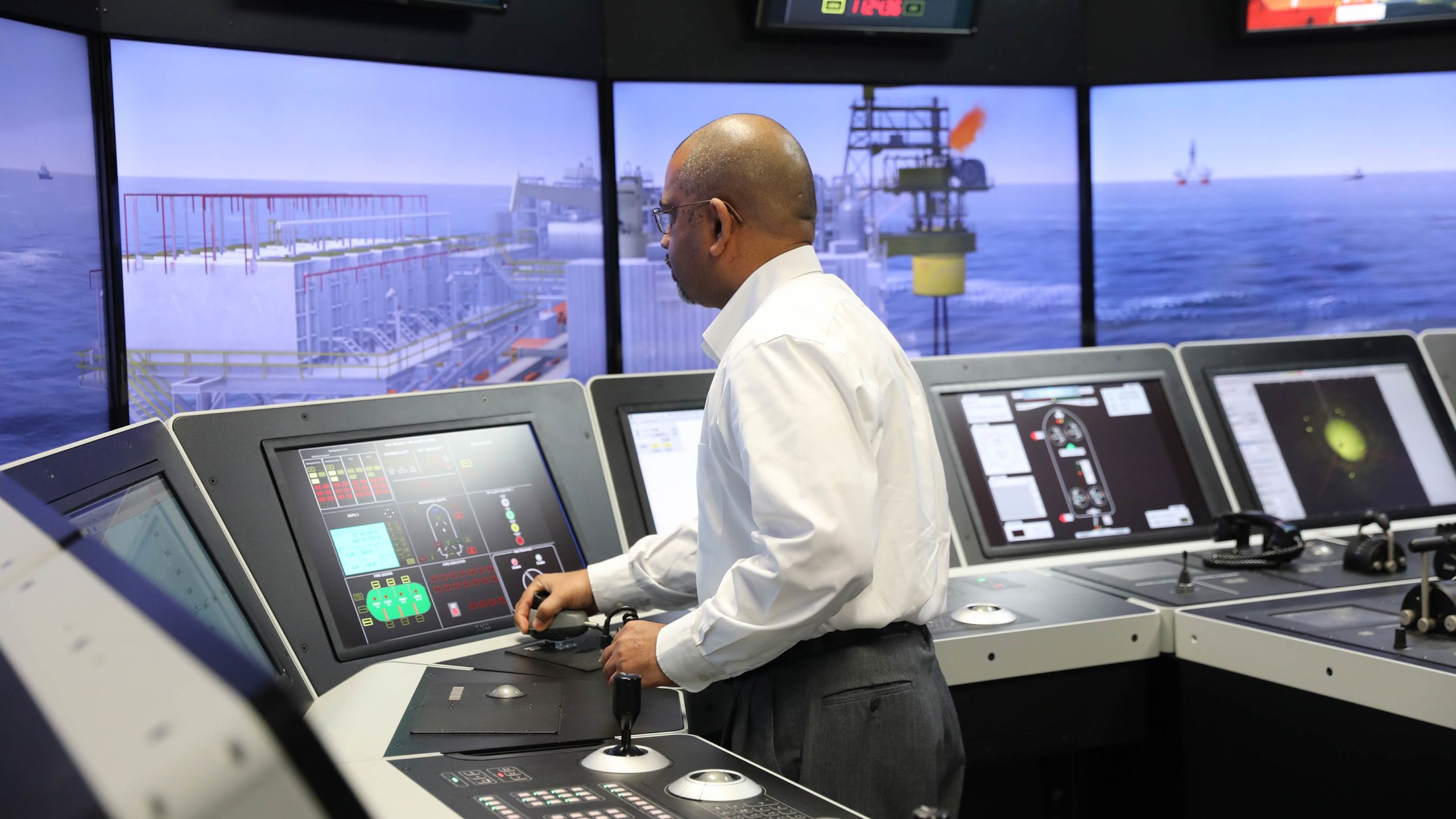Drills &
Exercises
MWCC recognizes that hiring the brightest minds in our industry isn’t enough. It is also our responsibility to provide them with leading edge, comprehensive training that helps uncover challenges and issues before they happen in a live environment.

MWCC Conducts Simulated Incidents to Keep Response
Skills Sharp
One important way that MWCC trains is through functional simulations. In a simulated incident, the Response Team is activated through the standard call out procedure, beginning a response to a detailed scenario specific to an MWCC-covered well. The Response Team goes through the same processes in a simulation as they would in an actual event. A simulation can be initiated by MWCC, a member company or the government to test MWCC and contractor readiness.
MWCC follows the guidelines from FEMA’s Homeland Security Exercise Evaluation Program (HSEEP). The organization conducts a wide range of exercises to ensure continuous response readiness, this range includes: seminars, workshops, tabletops, drills, functional and full-scale exercises. On average, MWCC participates in more than 50 exercises and trainings over the course of a year.

MWCC Response
Readiness & ICS
As part of our commitment to response readiness, it is essential that MWCC staff fully understand and embrace the Incident Command System (ICS). ICS is a standardized approach for emergency response developed and used by the U.S. government. MWCC staff receive basic ICS training to confirm a standard understanding of the chain-of-command and accountabilities in a response. Key subject matter experts receive advanced and ongoing ICS training to certify role-specific competencies. ICS courses are delivered by the Federal Emergency Management Agency (FEMA).
Key staff at MWCC also engage in training with the Regional Response Team of the U.S. Coast Guard to stay current on regulations and area contingency planning.

Using Virtual Reality Simulators to Enhance Response Readiness
Readiness through training is a mandate for MWCC’s key contractors. AET, a leader in maritime transport of hydrocarbons, and a key partner to MWCC, is charged with operating the vessels in an extended flowback incident where fluids need to be captured and sent for processing. MWCC’s Modular Capture Vessels (MCV) are customized for use in an extended flowback system from a compromised well, which is a key configuration differentiator between our vessels and a standard tanker. To make sure our AET partners are response ready, they train with MWCC’s purpose-built MCV virtual reality simulator.
The simulator is like the virtual reality training pilots use to practice for emergency situations. The controls of the simulator are built specifically to mirror the controls on MWCC’s MCVs. In the simulation experience, an instructor can test the Responders’ basic ability to pilot ships and respond to parallel incidents such as a fire onboard or a serious weather event.
MWCC’s Reservist Response Team oversees the functioning of the hydrocarbon processing facilities on top of the vessels in a flow back event. MWCC staffs its Reservist Response Team through a partnership with Danos. Reservist Responders participate in a virtual reality training simulator to test competencies in operating topside equipment and to prove an understanding of specific characteristics and demands of MWCC’s processing system.
Training and know-how are essential to MWCC’s business. We are committed to investing in both to ensure our teams are ready to meet the needs of our members and are prepared for multiple scenarios.
Containment System
Marine Well Containment Company’s (MWCC) Containment System was created with safety and flexibility…
Response Team
MWCC’s staff and Reservist Response Team are at the top of the industry, bringing decades of subject matter expertise…
Resources & Capabilities
Marine Well Containment Company’s (MWCC) industry-leading approach to deepwater well control incidents…